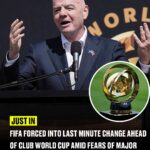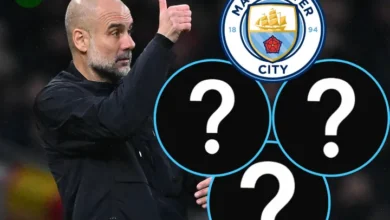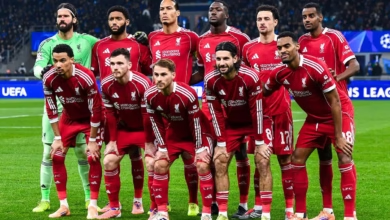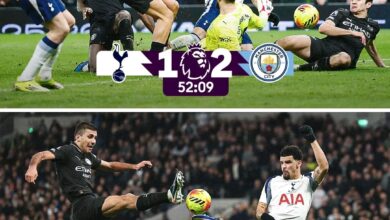Manchester City Should Trust Jack Grealish In The 2025/26
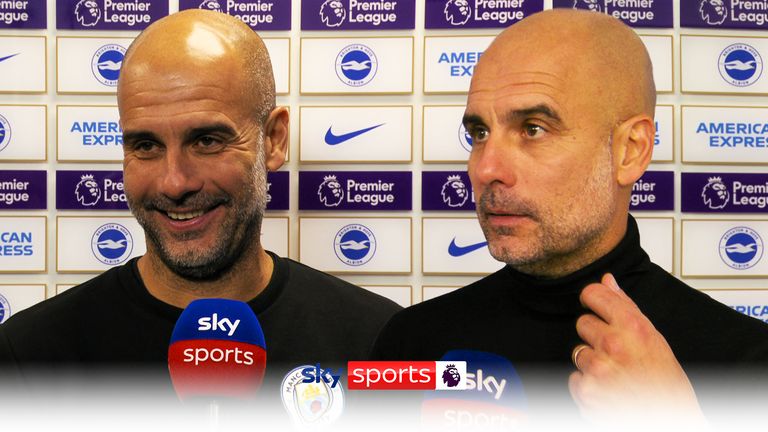
The football world is currently witnessing two significant developments that could reshape the landscape of elite football: Jack Grealish’s uncertain future at Manchester City amid persistent transfer speculation, and the launch of FIFA’s expanded Club World Cup format. Both stories intertwine as Manchester City prepares for what could be a defining period in their recent history, with Grealish’s role potentially crucial to their success in the upcoming tournament.
The Jack Grealish Conundrum: A Tale of Unfulfilled Potential
Jack Grealish’s journey at Manchester City has been one of the most scrutinized transfers in recent Premier League history. The English winger’s £100 million move from Aston Villa in 2021 represented not just a significant financial investment but also a statement of intent from Pep Guardiola’s side. However, the 2024/25 season has seen the 29-year-old fall dramatically out of favor, spending more time warming the bench than influencing games on the pitch.
The current situation surrounding Grealish is emblematic of the challenges that even the most talented players face when adapting to Guardiola’s intricate tactical system. The Catalan manager’s philosophy demands not just technical excellence but also tactical discipline and positional awareness that can take time to master. For Grealish, this adaptation period has been longer and more challenging than many anticipated.
The Case for Keeping Grealish
Despite the mounting pressure and transfer speculation, there remains a compelling argument for Manchester City to persist with Grealish. The player’s fundamental qualities haven’t disappeared overnight. His ability to retain possession under pressure, draw fouls in dangerous areas, and create space for teammates through his movement and ball-carrying abilities are assets that few players in world football possess to the same degree.
The issue isn’t necessarily Grealish’s technical ability but rather how he’s been utilized within City’s system. When deployed close to the touchline in a traditional wide role, his impact is significantly diminished. Grealish thrives when given the freedom to drift infield, connect play between the lines, and use his close control to navigate tight spaces. This positional flexibility was a hallmark of his performances at Aston Villa, where he was given the license to roam and create from various positions across the attacking third.
The comparison with other City wingers is instructive. While Jeremy Doku offers pace and directness, and Phil Foden provides goalscoring threat and tactical versatility, neither possesses Grealish’s unique combination of ball retention and press resistance. In games where City needs to maintain possession and break down stubborn defenses, Grealish’s skill set could prove invaluable.
The Tactical Argument
Guardiola’s tactical approach has evolved significantly during his tenure at City, with the team becoming increasingly direct and vertical in their play. This evolution has arguably moved away from Grealish’s natural strengths, which are more suited to a patient, possession-based approach. However, this doesn’t mean there isn’t a place for the Englishman in City’s tactical setup.
Against teams that employ low blocks and defensive structures, Grealish’s ability to provoke mistakes and win fouls in dangerous areas becomes particularly valuable. His knack for drawing multiple defenders and creating space for teammates is a tactical weapon that Guardiola has used effectively in the past. The key is ensuring Grealish receives consistent game time to rediscover his rhythm and confidence.
The argument for giving Grealish an extended run in the team rather than sporadic appearances is compelling. Players of his profile need time to build match fitness, tactical understanding, and confidence. Five or six consecutive starts could be the catalyst for a return to form, something that hasn’t been afforded to him in recent seasons due to City’s rotation policy and the competitive nature of their squad.
The 2025 FIFA Club World Cup: A New Era Begins
While Grealish’s future remains uncertain, Manchester City’s participation in the inaugural 32-team FIFA Club World Cup presents both an opportunity and a challenge. The tournament, which begins this weekend, represents FIFA’s ambitious attempt to create a truly global club competition that rivals the prestige of the World Cup itself.
Tournament Format and Structure
The expanded Club World Cup replaces the previous seven-team annual format with a 32-team competition held every four years. This new structure mirrors the World Cup format, with eight groups of four teams progressing to a knockout stage. The tournament will run from June 14 to July 13, 2025, entirely in the United States across twelve venues.
Manchester City, as defending champions from the previous format, have been drawn in Group G alongside Moroccan side Wydad, UAE’s Al Ain, and Italian giants Juventus. This group presents a fascinating mix of continental champions and represents the global nature of the competition. Chelsea, England’s other representative, face a potentially challenging group containing Brazilian powerhouse Flamengo, Tunisia’s Esperance Sportive de Tunisie, and Los Angeles FC.
The Global Spectacle
The tournament’s global appeal is undeniable, with Lionel Messi’s Inter Miami providing the opening match against Al Ahly of Egypt. The involvement of Messi, potentially alongside Cristiano Ronaldo if he secures a move to a qualified team, adds significant star power to the competition. Real Madrid’s acquisition of Trent Alexander-Arnold specifically for this tournament demonstrates the seriousness with which top clubs are approaching the competition.
The broadcasting arrangement reflects FIFA’s commitment to making the tournament accessible globally. In the UK, all matches will be available free-to-air through a combination of Channel 5 and DAZN, with the streaming service waiving its usual subscription fees for the duration of the tournament. This approach suggests FIFA’s recognition that the competition needs to establish itself in the football consciousness before becoming a premium product.
Financial Incentives
The financial rewards for success in the Club World Cup are substantial, with the winners potentially earning up to $125 million (£96.8 million). This prize money, combined with participation fees distributed on a sliding scale based on sporting and commercial criteria, makes the tournament financially significant for participating clubs. For Manchester City and Chelsea, success could provide not just prestige but also substantial financial benefits that could impact their transfer activities and squad development.
The appearance fees alone, ranging from $38.19 million to $12.81 million for European clubs, represent significant sums that could influence how seriously clubs approach the competition. These financial incentives, combined with the tournament’s potential to establish new commercial partnerships and global exposure, create compelling reasons for clubs to field their strongest possible teams.
The Intersection: Grealish’s Opportunity
The Club World Cup presents a unique opportunity for Jack Grealish to rehabilitate his reputation and demonstrate his value to Manchester City. The tournament’s format, with group stage matches followed by knockout rounds, could provide the perfect platform for Grealish to showcase his abilities against varied opposition styles.
Tactical Suitability
The diverse range of opponents in the Club World Cup could play to Grealish’s strengths in ways that domestic competition doesn’t always allow. Against teams from different continents with varying tactical approaches, Grealish’s ability to adapt and find spaces could prove crucial. His experience in international football and ability to perform in high-pressure situations could be valuable assets for City’s campaign.
The tournament’s condensed format also means that squad rotation will be essential, potentially providing Grealish with the consistent playing time he needs to rediscover his best form. If Guardiola can find the right tactical role for the Englishman within the team’s structure, the Club World Cup could serve as a launching pad for a successful 2025/26 season.
The Confidence Factor
Perhaps most importantly, strong performances in the Club World Cup could restore Grealish’s confidence and his standing within the City hierarchy. Football is often about momentum and belief, and a successful tournament could provide the catalyst for Grealish to reclaim his position as a key player in Guardiola’s plans.
The global stage and media attention surrounding the Club World Cup could also serve Grealish’s personal brand and marketability, factors that shouldn’t be underestimated in modern football. Strong performances could silence critics and demonstrate that his best years are ahead of him rather than behind him.
Broader Implications for Manchester City
The Club World Cup represents more than just another trophy opportunity for Manchester City. It’s a chance to establish themselves as the dominant force in global club football and to build on their recent successes in European competition. The tournament’s timing, coming at the end of a long season, will test the depth and quality of City’s squad.
Squad Management
Guardiola’s squad management during the tournament will be crucial to City’s success. The condensed format and quick turnaround between matches mean that rotation will be essential, but the quality of opposition suggests that weakened teams could struggle. This balance between maintaining competitiveness and managing player fitness will be one of the key tactical challenges of the tournament.
The presence of players like Grealish, who may not be first-choice in domestic competition but possess the quality and experience to contribute in major tournaments, could prove vital. The tournament format rewards squads with depth and quality throughout, rather than just strong starting elevens.
Global Positioning
Success in the Club World Cup would cement Manchester City’s position as the world’s premier club side and provide significant marketing and commercial opportunities. The global audience for the tournament, combined with the extended format, offers unprecedented exposure for participating clubs.
For City, who have invested heavily in building their global brand, the Club World Cup represents an opportunity to showcase their football philosophy and attract new fans worldwide. The tournament’s American setting also aligns with City’s efforts to expand their presence in the lucrative North American market.
The Controversy and Criticism
Despite the excitement surrounding the expanded Club World Cup, the tournament has faced significant criticism from various quarters. Player welfare concerns, with the additional fixtures adding to an already congested calendar, have led to threats of strike action from player unions. The global footballers’ union, FIFPro, has taken legal action against FIFA over the tournament’s scheduling and its impact on player welfare.
Player Welfare Concerns
The expanded format means that successful teams could play up to seven additional matches during what would traditionally be the off-season. This adds to the already substantial fixture load that top players face, with many arguing that the physical and mental demands are becoming unsustainable.
For players like Grealish, who may be fighting for their place in their club’s plans, the tournament represents both an opportunity and a potential burden. The additional matches could provide chances to impress, but they also mean less rest and recovery time during the summer break.
Commercial Motivations
Critics argue that the expanded Club World Cup is primarily driven by commercial rather than sporting considerations. FIFA’s struggles to find a broadcaster initially, followed by the unusual arrangement with DAZN, have raised questions about the tournament’s commercial viability and appeal.
The decision to award a spot to Inter Miami based on their status as the host nation’s representative, despite their lack of continental success, has also drawn criticism as prioritizing commercial appeal over sporting merit.
Looking Ahead: The Future of Global Club Football
The 2025 Club World Cup represents a potential watershed moment for global club football. If successful, it could establish itself as the premier club competition worldwide, rivaling the Champions League in prestige and commercial appeal. However, failure to capture the imagination of fans and players could relegate it to a footnote in football history.
Long-term Vision
FIFA’s vision for the Club World Cup extends beyond the 2025 tournament. The organization sees it as a cornerstone of a new global football ecosystem, with the competition potentially growing in importance over time. The success of this inaugural expanded format will largely determine whether that vision becomes reality.
For clubs like Manchester City, early success in the competition could provide significant advantages in terms of prestige, commercial opportunities, and global recognition. The tournament could also serve as a stepping stone to establishing new markets and partnerships worldwide.
Impact on Transfer Markets
The Club World Cup’s financial rewards and global exposure could also impact transfer markets and player valuations. Success in the competition could enhance players’ profiles and market values, while poor performances could have the opposite effect.
For Grealish, the tournament represents a chance to demonstrate his value not just to Manchester City but to potential suitors if he does eventually leave the club. Strong performances could reignite interest from other top clubs and potentially increase his transfer value.
Conclusion
The convergence of Jack Grealish’s uncertain future at Manchester City and the inaugural expanded FIFA Club World Cup creates a fascinating subplot in the ongoing evolution of global football. While Grealish’s situation represents the challenges faced by even the most talented players in adapting to elite club football, the Club World Cup represents FIFA’s ambitious attempt to reshape the global football landscape.
For Manchester City, both stories are interconnected. The club’s success in the Club World Cup could be influenced by their ability to utilize players like Grealish effectively, while the tournament provides a platform for players to demonstrate their value and secure their futures.
The argument for keeping Grealish at Manchester City remains compelling, particularly given the unique challenges and opportunities presented by the Club World Cup. His experience, technical ability, and tactical intelligence could prove crucial in a tournament that demands both quality and depth from participating squads.
Ultimately, the 2025 Club World Cup will serve as a significant test for both Jack Grealish’s future and FIFA’s vision for global club football. Success for both could lead to a new chapter in football history, while failure could result in missed opportunities and what-if scenarios that linger for years to come.
The tournament begins this weekend, and with it, the answers to many of football’s current questions will begin to emerge. For Grealish, Manchester City, and the broader football world, the next month could prove to be transformative in ways that extend far beyond the immediate results on the pitch.
